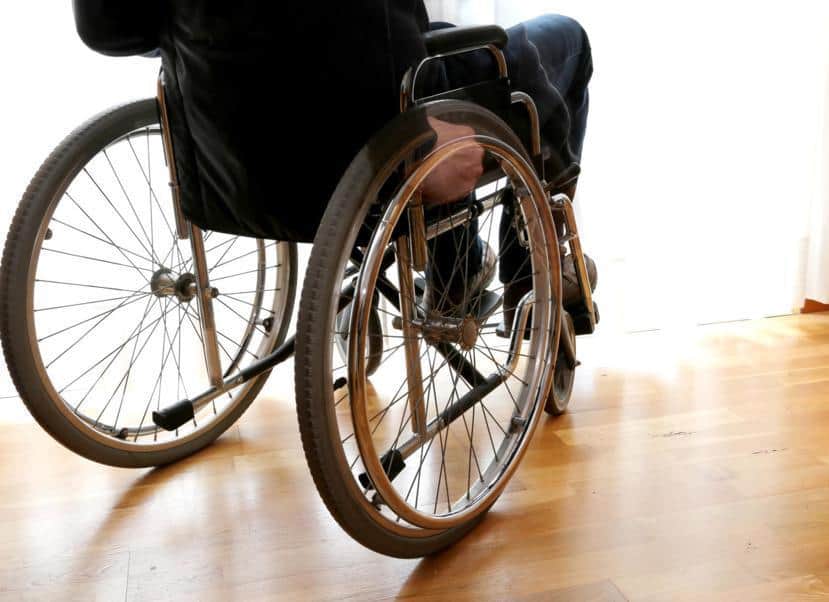ALS Care: What Family and Professional Caregivers Need to Know

Amyotrophic lateral sclerosis (ALS) is an illness from which certain nerve cells in the spinal cord and nerve slowly die. These nerve cells are called motor neurons. Also, they control the muscles that let one move the parts of his body. Relatively, Lou Gehrig’s disease is yet another name for this illness. Since the disease is severe and at times alarming, patients should specifically receive ALS care from a professional or someone who has knowledge about it.
Indeed, if a member of the family has ALS, you should immediately take action to prevent it from getting worse. ALS care is very important so that the patient gets the proper treatment and handling of his sickness. So, if you are the one taking care of the person with this disease, or if you are in charge of getting a caregiver for him, you’re on the right page. Here, you will discover not just important information about ALS, but the right things to do, as well as the care provider.
What happens after ALS progresses?
As the illness progresses, ALS patients slowly turn weaker and more disabled. In addition, how quickly the disease worsens is different for everyone. Meaning, some people live with ALS for several years. More so, over time, ALS includes muscle cramps, muscle weakness, and difficulty in walking, speaking, eating, swallowing, and breathing which are all indications that can result in injury, illness, and eventually, fatality.
Moreover, in the majority of the cases, since ALS can also affect the nervous system, death can occur within 3 to 5 years from the onset of the symptoms. Some who acquire ALS, though, live longer for up to decades. If this is your first time to learn about the sickness, your initial reaction may be alarming. Nevertheless, talking to a doctor, getting counseling, or joining a support group may help you deal with your feelings and even provide proper ALS care.
It is important to note that ALS is no longer a common or typical disease. In fact, in the United States, and most parts of the world, only 1 to 2 out of 100,000 people acquire the disease. Relatively, men get ALS slightly more often than women do and it can occur at any age. However, it most frequently begins among the middle-aged and older adults.
How is ALS acquired and who usually receives ALS care?
Recently, more than 20,000 people have ALS in the U.S. In connection to this, approximately 6,000 Americans took the clinical tests and were newly diagnosed with ALS every year. And, even though the symptoms typically occur in individuals aged 40 to 70 years old, ALS, one of the rarest motor neuron diseases, takes place in both younger and older persons.
One can extend his chance to survive averagely for up to 5 years if he is receiving proper ALS care. However, the progression of illness varies with every individual. Approximately 10% of those diagnosed with ALS live for even 10 years or more. Family caregivers, physicians, nurses, physical therapists, speech therapists/pathologists, occupational therapists, and social workers are all working together with the patients to help them find a cure for ALS and guarantee a high quality of life.
What are the common symptoms of ALS?
Some people with ALS become aware of the beginning of their illness when their hands become clumsy. Consequently, they find it difficult to perform their regular and simple tasks like writing or unlocking the doors. Other patients experience weakness or sometimes numbness, in the legs. At times, they may even trip or stumble. Some even notice they have problems speaking or difficulty swallowing. Other signs and symptoms that a person already needs ALS care include:
- Stiffness
- Occasional jerking of the legs or arms
- Twitching
- Drooling
- Problems with thinking (which may refer to as cognitive impairment)
- Worsening behavior, personality, and language that may impair one’s everyday functions
What does a provider of ALS care need to do?
Whether you are a professional caregiver or a family member taking care of the ALS patient, it is important that you know what you are doing. Patients are not the only ones who need proper care. More importantly, equip yourself, not just with all the important information about ALS, but with self-help tools, as well. Here are some of the must-do to effectively provide ALS care:
- Take extra care of yourself – Have some ‘me time’ and keep
- Seek help – Admit that you are not always strong. Meaning, if you feel physically weak or you’re not feeling well, ask for assistance from the other family members or fellow caregivers.
- Have that self-worth – Acknowledge the value of your work. Therefore, you should feel good about yourself that you are being able to provide care for your patients.
- Educate yourself – Get all the help and information you need about ALS as a disease and ALS care.
- Talk to other caregivers – Share information and experiences with the other caregivers of ALS patients. It will help you understand and appreciate your job more.
How Innovative Homecare Solutions can provide proper ALS care

Innovative Homecare Solutions provides non-medical care for people facing serious illnesses like ALS Care. Essentially, the goal is to improve the quality of life for both the client and the family. You can avail of our home care services at any age and any stage of your illness, as well. Moreover, Innovative Homecare Solutions works in collaboration with a patient, their neurologist, and other doctors to manage the symptoms. Our agency can also help with communication, and to assist with the coordination of care. One of our caregivers can even keep a patient company as he finds treatments for ALS. More so, our care specialists are experts in managing activities of daily living and thus, help alleviate the stress of the illness brings.
Additionally, at Innovative Homecare Solutions, we offer ALS Care that include:
- Assistance with ADLs
- Meal Preparation
- Feeding Assistance
- Vital Signs Monitoring
- Routine AM I PM Care
- Toileting Assistance
- Companionship at Home
- Transportation to Social Functions and Medical Appointments
- Light Housekeeping
How to receive the proper care
Innovative Homecare Solutions makes it easy for you to find the right and best ALS caregivers. Undoubtedly, our home care services come in a range of options. With many flexible choices, you can also choose the level of support you need when you need it most. Regular home visits at set times of the day or night, are available if you need that support to be it seldom or often. The visits can be from as short as an hour each week and right through to several hours a day.
Overnight support is available too, in the form of an hourly night shift caregiver who can help you with everything you need. In fact, he can even check if the medicines you’re taking to cure the sickness are FDA approved. However, you may also opt for the one you prefer to give the perfect care for a loved one with ALS. Contact us today to schedule a free, no-obligation elderly ALS care and home care service assessment.